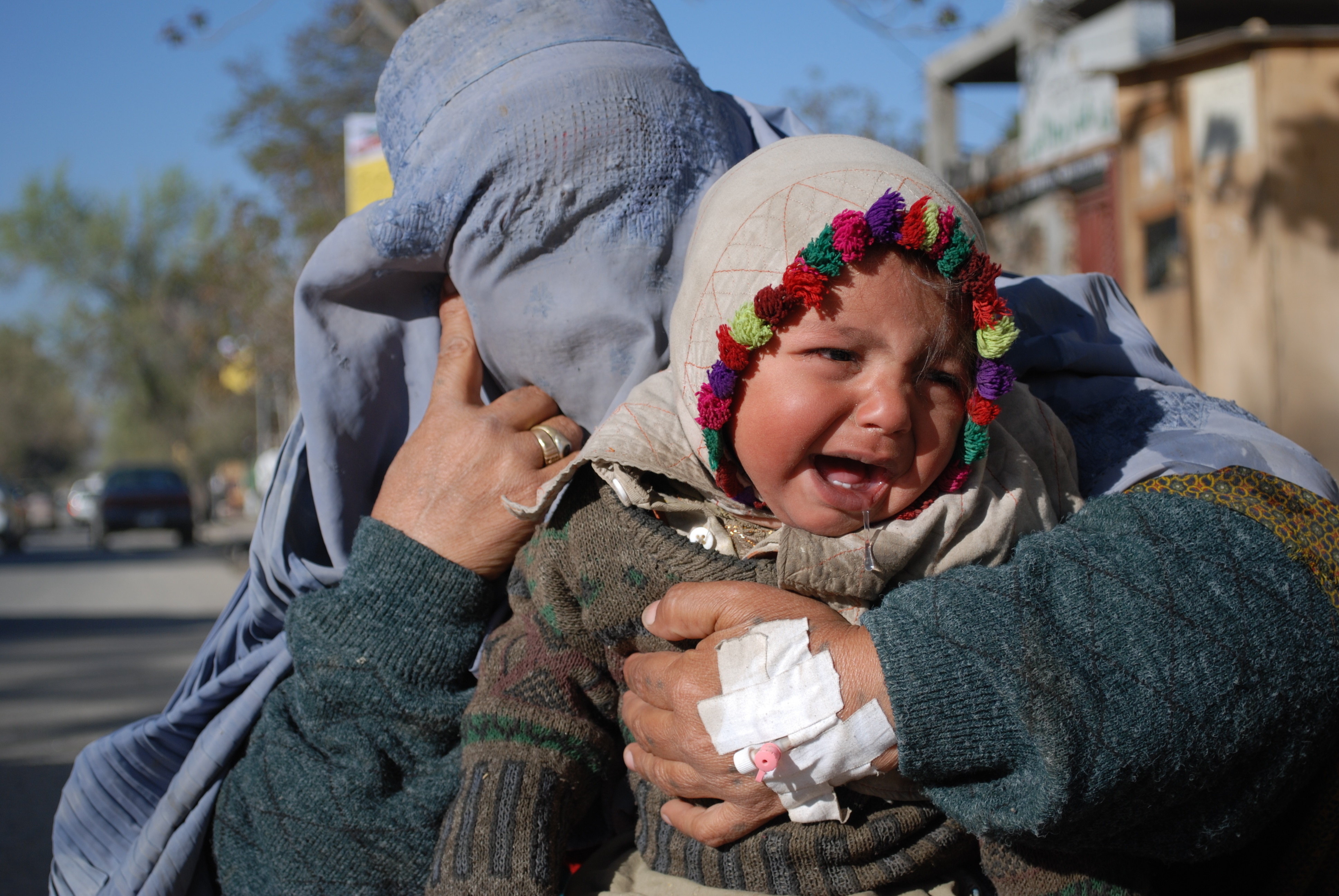Afghan Patients Flock to India
Afghan patients in India

NEW DELHI: Following the invasion of Afghanistan by the American military forces in 2001 and the subsequent ouster of the Taliban, Indo-Afghan ties have Improved to a large extent. As an outcome of this change, there has been an increase in the number of Afghans coming to the Indian capital for medical advice and treatment. Since 2003, thousands of patients flock in to India from Afghanistan every year, because of the reputation of the hospitals based here in addition to the cost of treatment which is low compared to the western world.
These Afghan patients live largely around the Lajpat Nagar Area in south Delhi. While trying to locate some of these patients in the area for this story, this correspondent came across a whole colony dominated by these Afghani patients living in rented accommodation, in a colony known as Kasturba colony.
Shamshur Rahman , who is 31, could barely converse in English but the bandage around his head was convincing enough to suggest that he had gone through a brain operation. With the help of our translator, we figured out that he had a brain tumor and had just gotten operated in the Primus Hospital located in the chanakya puri area of the city. Rahman told us that he could not risk this operation in Afghanistan as the hospitals there do not have the equipment necessary to carry out these critical operations. He further says, “I choose to come to India because my friends had come to India before and they were very happy with the treatment they had undergone here.” Shamshur belongs to Kapsia region of Central Afghanistan.
As we moved ahead, we felt like outsiders; it was clear that people were not accustomed to local Indians walking about.
Nengarhar, who was sitting behind an Afghani Kabab stall, approached this correspondent asking whether he was a journalist. On hearing that the focus of the story was on patients in the area, Nengarhar turned to the reality of American and NATO-led bombings in Afghanistan.
A conversation with him Nengarhar revealed that he had lost his entire family in the bombings; he and his son are the sole survivors. Nengarhar’s son was traumatised and had previously come to India for psychological treatment.
Nengarhar himself suffers from a disease which he was unable to name but could identify it as a skin problem caused due to the lack of vitamin B; he said that people from areas of bombardment are prone to it. This time, however, he has come to India for a different medical reason, Nengarhar, suffers from a disc problem in the waist which results in sleepless nights with severe back pain.
While expressing his contentment with the way things are going in India, he says, “I had earlier travelled to Pakistan, but that country is nowhere close to India in terms of behavior and tolerance for foreigner patients. Everyone here is so cooperative unlike in Pakistan.”
Fariudum, who is a refugee at the UN office and also works as a translator with these patients, tells us that most of the patients he works with come here for treatments such as heart diseases, cancer and brain tumors. “Patients have started coming to India more because after the American invasion and the ouster of Taliban from Afghanistan, the visa restrictions for India have been lifted and also because of the end of the Taliban government in Afghanistan, business has flourished which gives Afghanis money to come and get them treated here”, Fariudum explains.
The story of another patient from the country, Bawal Haque, who is 42, throws light on the ongoing violence in the country. Hague belongs to the Baghzai district of the country. He narrates an incident when he was trapped and shot at in his face when there were hostilities between the forces of General Dustam and Toran Ismail kahn (Commander of the Jamiat party) in 1996.
“I was understood as a convoy and shot in my face by one of the two forces, Although I speculate that it was Dustams men who shot at me since the fire came from the left side and his forces were also stationed on the left side of my village”, he tells .
This time, Haque has come to India because of some problem in his stomach and is getting treated at the Fortis hospital here. He is full of praises for India. He says, “ I love everything about this place, the culture , the people , the doctors and of course the behavior of the police which is very different in countries like Pakistan and Iran, this brings us to India, every time there is a medical need.”
Kawa Jaan , who is a student of peace and conflict from Afghanistan and is studying at Jamia Millia Islamia, New Delhi, says, “When thousands of Afghans travel to India every day, it economically boosts the Indian airline industry and then these patients pump in a lot of money in these hospitals which again has positive implications on the Indian economy, so it is a two way process which benefits both, the patients from Afghanistan and the Indian economy.
While the two countries are still figuring out their political standing, the Afghan people are making the most of the improvement in diplomatic relations.



